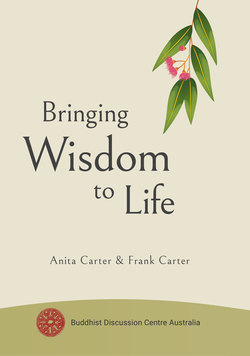Читать книгу Bringing Wisdom to Life - Anita Carter - Страница 7
На сайте Литреса книга снята с продажи.
Chapter 2 – Happiness Map
ОглавлениеWords like “love” or “happiness” can mean a lot of different things to different people, or can mean different things when used in different circumstances. In the context of Buddhism what are we referring to when we talk about our well being and happiness?
We are not really talking about the happiness that comes when we experience something we like or acquire something we wanted. That form of happiness from a Buddhist point of view is not very reliable or stable. As soon as we lose the thing we were happy about or as soon as the experience we like stops, our happiness can shrivel up.
The pleasure of hearing a great new song fades, our new clothes become old fashioned, our new car becomes outdated, our cutting-edge computer is soon too slow, and maybe even a past friend becomes a new enemy. The person we once loved now seems to irritate us.
These scenarios we all know too well. Getting what we want doesn't ensure our happiness. Maybe it looks like it will make us happy at the time, but from a Buddhist viewpoint it is transitory and unreliable. Sooner or later everything wears out.
Also, this type of happiness that depends on something outside us often has too much dependency and attachment in it.
This dependency tends to work against our happiness. For example, we may experience some happiness with our partner yet at the same time; because of our attachment to them, we may experience such things as jealousy, possessiveness, insecurity and resentment because they won't be what we want them to be.
We are focused too much externally. We see external improvement as our main investment for our wellbeing and our family's wellbeing. Consider all the things we believe we need to improve; home improvement, wealth improvement, car improvement, status improvement, job improvement, relationship improvement and so many things. How much of our perception and mental space is caught up in this belief that improving our external situation is all that is needed to be happy?
Do we really get to be happier over our lifetime as we attain these things? In any case, can we be sure which of these things will last for us?
It's not that these things are of no value. They are certainly important and necessary and we must attend to them. However, in essence, these things are fundamentally our mechanics for living. They are our supply chain of what is needed to support our life such as our food, our shelter, our clothing, our transport, our health, our education, and so on. But we can easily believe they are ends in themselves. We hope that this life support system when developed to a certain level will provide real security and happiness for us.
If our existing view of how happiness is produced was accurate, we would understand how to become happier over time and we would see many others who followed a similar path appearing to be really happy, most of the time. Is this what is happening?
It becomes evident if you do the analysis that our happiness will never have a secure base if it is tied to external events and conditions which are outside our control. By contrast, the Buddhist approach comes from the understanding that to develop real happiness in our mind we need to focus on improving our mind, and the way we experience living.
